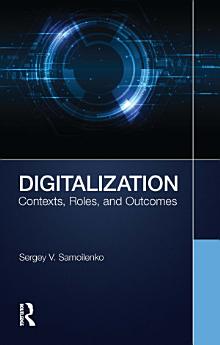Digitalization: Contexts, Roles, and Outcomes
Información sobre este eBook
Digitalization: Contexts, Roles, and Outcomes is a contemplation and analysis of the socio-technical system that is known as digitalization. It considers the context of digitalization as well as the ways by which digitalization offers value to the context within which it operates. This book aims to offer readers an entry point to a path of inquiry into the different aspects of digitalization. The goal is to identify main directions for further inquiry as well as to outline the most obvious obstacles along the way. The book aims to guide readers on their own unique journeys using the basic ideas, principles, and concepts synthesized, developed, and presented in the book. It is beneficial to both practitioners and researchers.
The book covers:
- The functionality of digitalization
- The significance of digitalization
- Identifying the context of digitalization
- Designing a control system
- A cognitive model for the theory of digitalization
- Designing a theory of digitalization
The book helps readers to consider the subject of digitalization in a rigorous and rational way so their own perspectives can emerge stronger and be substantiated and reinforced by building an argument vis-à-vis perspectives and points examined in this book.
Acerca del autor
Sergey Samoilenko is a Professor in the Department of CIS/CS at Averett University, Danville, Virginia. He holds his PhD and MS in Information Systems from Virginia Commonwealth University. Sergey’s research is focused on the areas of Information Technologies for development, decision support systems, and design of quantitative multi-method methodologies. He is an author of multiple books, books’ chapters, and he has published in a variety of journals, as well as in numerous conference proceedings. Sergey can be reached at [email protected].





